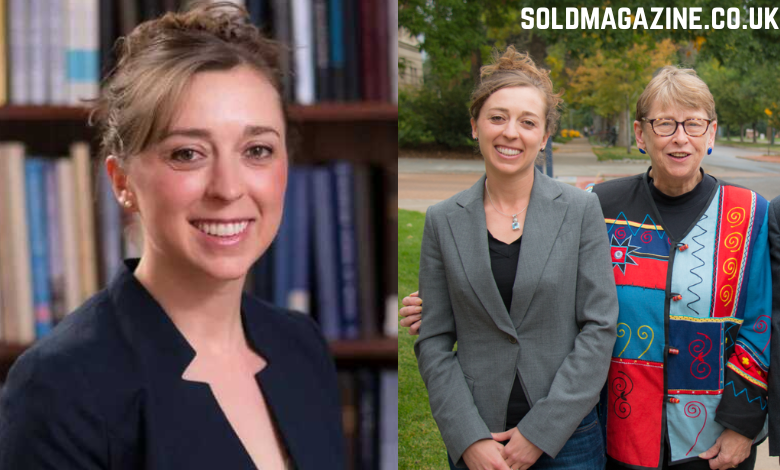Introduction
Elizabeth Holley is a name that resonates in the field of mining engineering and geological sciences. As an Associate Professor in the Department of Mining Engineering at the Colorado School of Mines, her contributions to exploration geology, mining innovation, and environmental sustainability have made a lasting impact on both academia and the industry. With a career built on the integration of deep technical expertise, a commitment to sustainable practices, and an understanding of the social and economic dimensions of mining, Holley has proven herself as a leader in her field.
Early Academic and Professional Foundations
Holley’s journey into the world of geology and mining began during her undergraduate studies at Pomona College, where she earned a Bachelor of Arts in Geology. It was here that her fascination with the Earth sciences first took root, particularly through her focus on metamorphic petrology. This field of study, which deals with the processes by which rocks are transformed by heat, pressure, and chemical processes, gave Holley a strong foundation in mineral formation and geological processes. Her interest in the physical and chemical makeup of the Earth would serve as a guiding force throughout her career, shaping both her academic path and her professional philosophy.
After completing her undergraduate degree, Holley continued to build on her academic foundation. She pursued further studies that expanded her scientific knowledge and practical understanding of the mining industry. Her training and research during this period allowed her to blend her geological knowledge with an understanding of the practical applications of that knowledge in the context of mining and resource extraction.
The Role of Elizabeth Holley at the Colorado School of Mines
In 2008, Holley took a pivotal step in her career by joining the faculty of the Colorado School of Mines, an institution renowned for its focus on applied science and engineering, particularly in the fields of mining, petroleum, and geology. She quickly became a respected member of the academic community, known not only for her deep technical knowledge but also for her commitment to addressing the broader social, environmental, and economic aspects of mining.
As an Associate Professor in the Department of Mining Engineering, Holley has the unique ability to combine her expertise in geology with a strong understanding of the economic and social implications of mining practices. She has always been an advocate for the idea that mining engineers should be well-versed in both the technical and the practical aspects of their field. This belief is reflected in her approach to teaching and research, where she ensures that students are not only equipped with theoretical knowledge but also with hands-on, real-world experiences. Her academic approach has earned her recognition not only within her university but also in the broader mining community.
Research Focus and Contributions
One of the key areas of Holley’s work lies in the intersection of geology, mining engineering, and sustainability. As the global demand for critical minerals, such as those used in batteries for electric vehicles and renewable energy technologies, continues to rise, Holley has focused much of her research on how to meet this demand in an environmentally responsible manner. This includes examining mining practices, developing new exploration techniques, and seeking ways to reduce the environmental impact of resource extraction.
Holley’s research spans multiple continents and encompasses a wide range of topics. Her work has involved a detailed investigation of mineral exploration processes, geophysical techniques, and the impact of mining on ecosystems. She has also examined the social and economic factors that influence mining operations, particularly in the context of developing countries and regions that rely on mining as a significant part of their economy. By addressing the technical, environmental, and societal dimensions of mining, Holley’s research aims to provide sustainable solutions that benefit both the industry and the communities it serves.
Her work has received substantial support from several prestigious institutions and organizations, including the National Science Foundation (NSF), the Centers for Disease Control and Prevention’s National Institute for Occupational Safety and Health (CDC/NIOSH), the United States Geological Survey (USGS), the Gates Environmental Fund, and several mining companies. These collaborations reflect the broad impact of her research and its relevance to both scientific inquiry and practical application in the mining industry.
Impact on the Energy Transition and Climate Change
In today’s rapidly changing global landscape, the demand for critical minerals is being driven not just by traditional industries but also by the shift to clean energy technologies. Minerals such as lithium, cobalt, nickel, and rare earth elements are crucial for the production of batteries for electric vehicles, solar panels, and wind turbines. As nations make a concerted effort to reduce their carbon footprints and transition to renewable energy sources, the need for these minerals is expected to grow exponentially.
This is where Elizabeth Holley’s work becomes particularly significant. Her research addresses the need to balance the increasing demand for critical minerals with the urgent need for environmental sustainability. As countries accelerate their efforts toward achieving net-zero emissions and combating climate change, Holley’s advocacy and research contribute to ensuring that mineral extraction can occur in a way that is socially equitable, environmentally sound, and economically viable.
Holley’s expertise extends beyond the technical side of mineral extraction. She also emphasizes the importance of responsible resource management, which includes considering the impacts of mining on local communities and ecosystems. Her work in this area seeks to create pathways for the mining industry to align its practices with global environmental and social goals. This includes promoting the responsible management of tailings, water resources, and waste products generated by mining operations, as well as ensuring that mining companies are transparent and accountable in their operations.
Industry Collaborations and Real-World Impact
In addition to her academic research, Elizabeth Holley has been instrumental in fostering collaborations between academia, industry, and government agencies. These collaborations help to bridge the gap between scientific research and practical application, ensuring that Holley’s work can have a tangible, real-world impact.
Her partnerships with mining companies, governmental agencies, and research institutions have allowed her to work on projects that address some of the most pressing challenges in the mining industry today. Whether it is exploring new methods for more efficient mineral extraction, developing sustainable mining technologies, or improving the health and safety of workers in the industry, Holley’s contributions are directly shaping the future of mining.
Her involvement with organizations such as the National Science Foundation and the United States Geological Survey has given her the opportunity to influence policy decisions and drive the development of new technologies. By working with stakeholders across various sectors, Holley is helping to ensure that the mining industry can meet the demands of the future while mitigating its environmental and social impacts.
Looking Ahead: The Future of Mining and Sustainability
Elizabeth Holley’s work will undoubtedly continue to shape the future of mining engineering for years to come. As the world transitions to a more sustainable energy system, the role of mining and the need for responsible resource extraction will only grow in importance. Holley’s research and advocacy are helping to ensure that this growth occurs in a way that is both environmentally responsible and economically beneficial for all stakeholders involved.
The increasing demand for critical minerals, paired with the growing importance of sustainability, makes Holley’s contributions all the more vital. Her ability to combine technical expertise with a deep commitment to environmental responsibility makes her one of the most influential figures in the field today. As the global energy transition continues, her work will remain at the forefront of efforts to ensure that the mining industry can provide the resources needed to power a cleaner, more sustainable future.
Conclusion
Elizabeth Holley’s career is a testament to the power of combining scientific expertise with a passion for making a positive impact. From her early academic work in geology to her current role as a leading figure in mining engineering, Holley’s journey has been marked by a commitment to sustainable practices and a belief in the power of science and innovation to solve real-world problems. As she continues her work at the Colorado School of Mines, Holley’s influence on the field of mining will undoubtedly continue to grow, leaving a lasting legacy for future generations of engineers, scientists, and policymakers.
FAQS
1. Who is Elizabeth Holley?
Elizabeth Holley is an Associate Professor at the Colorado School of Mines, specializing in mining engineering and sustainable resource management.
2. What is Elizabeth Holley’s academic background?
Holley holds a Bachelor of Arts in Geology from Pomona College, with a focus on metamorphic petrology.
3. What is Elizabeth Holley’s area of expertise?
Her expertise lies in exploration and mining geology, particularly focusing on sustainable practices and responsible resource management.
4. What research support has Elizabeth Holley received?
Holley has received research support from the National Science Foundation, CDC/NIOSH, USGS, and various mining companies.
5. Why is Elizabeth Holley’s work significant?
Her work addresses the growing demand for critical minerals while promoting environmentally responsible and socially equitable mining practices.




